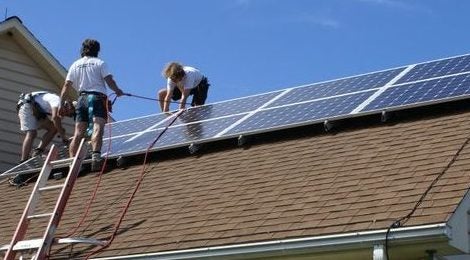What you need to know about Solar Renewable Energy Credits in New Jersey

New Jersey recently surpassed more than 90,000 solar installations. This robust solar activity ranks the state near the top nationally. There are many reasons for our state’s high ranking. Chief among them is our strong market for state’s solar renewable energy credits (SRECs). SRECs enable solar homeowners to pay off the cost of their system more quickly. Coming changes to New Jersey law will ensure the market for SREC stays strong. If you’re thinking about going solar, it’s important to understand how SRECs work, and help you pay for your system.
SRECs are created based upon the amount of energy your solar system produces. You earn one SREC for 1,000 kilowatt hours of energy produced by your system. An average sized system will generate about six SRECs per year.
SRECs are tradable commodities, like stocks or bonds. They derive their value from utilities’ need to comply with New Jersey’s renewable portfolio standard (RPS). The RPS requires New Jersey’s energy mix to contain a certain percentage of renewables. The current target is 50% renewables by 2030. Utilities are fined if they do not meet this requirement. They purchase SRECs as a way to support renewable energy development, and avoid the fine.
This fine acts as a cap on SREC’s value. If SRECs were more expensive than the fine, utilities would just pay the fine. New Jersey lawmakers recently passed legislation that will increase the fine. This in turn, will increase the value of SRECs.
New Jersey SRECs currently trade for $235 per credit. Because SRECs are a tradable commodity, you’ll likely have to pay a commission or service charge to a broker or aggregator. And since they are traded on an open market, their price will fluctuate. You can only be eligible for SRECs is as owner of the system. Solar systems under a Power Purchase Agreement (PPA) or solar lease still generate SRECs, but for the owner of the system.
The legislation will keep New Jersey’s SREC market strong through 2021. After that, it charges the Board of Public Utilities with developing an alternative means for encouraging solar development. It is unclear what that system will look like and if solar homeowners will be able to make use of credits. All the more reason to make the decision to go solar now.
